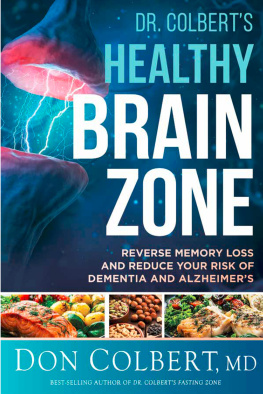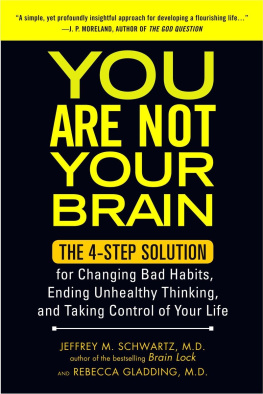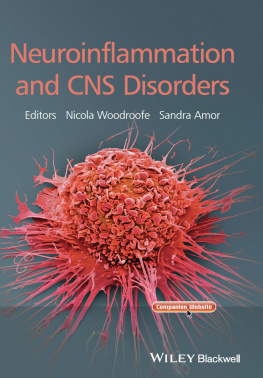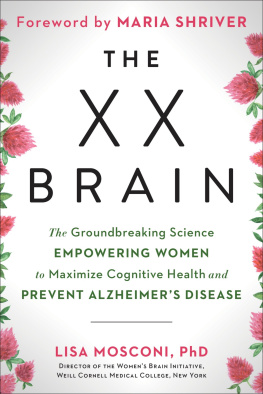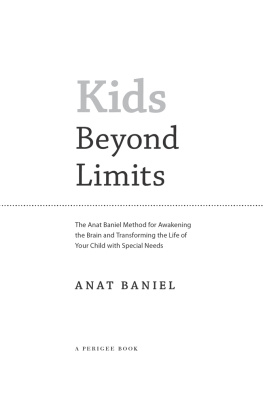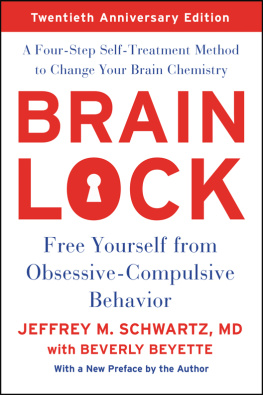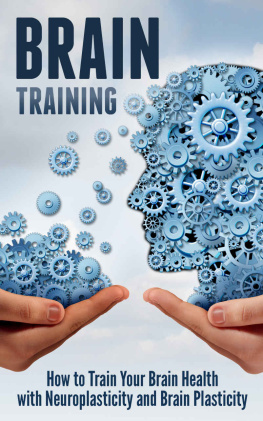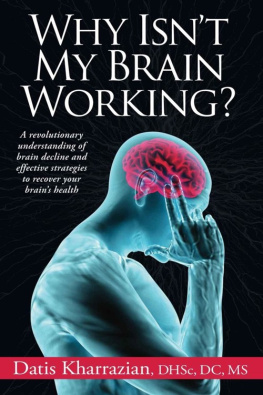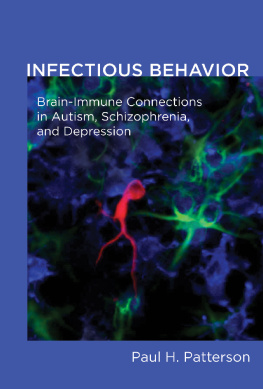NEUROIMMUNITY
NEUROIMMUNITY
A New Science That Will Revolutionize How We Keep Our Brains Healthy and Young
MICHAL SCHWARTZ
with Anat London
With a foreword by Olle Lindvall

Published on the foundation established in memory of William Chauncey Williams of the Class of 1822, Yale Medical School, and of William Cook Williams of the Class of 1850, Yale Medical School.
Copyright 2015 by Michal Schwartz.
All rights reserved.
This book may not be reproduced, in whole or in part, including illustrations, in any form (beyond that copying permitted by Sections 107 and 108 of the U.S.
Copyright Law and except by reviewers for the public press), without written permission from the publishers.
Yale University Press books may be purchased in quantity for educational, business, or promotional use. For information, please e-mail (U.K. office).
Designed by Mary Valencia.
Set in Perpetua and ITC Stone Sans types by Integrated Publishing Solutions.
Printed in the United States of America.
Library of Congress Control Number: 2015932302
ISBN 978-0-300-20347-9 (cloth : alk. paper)
A catalogue record for this book is available from the British Library.
The information and suggestions contained in this book are not intended to replace the services of your physician or caregiver. Because each person and each medical situation is unique, you should consult your own physician to get answers to your personal questions, to evaluate any symptoms you may have, or to receive suggestions for appropriate medications.
The author has attempted to make this book as accurate and up-to-date as possible, but it may nevertheless contain errors, omissions, or material that is out of date at the time you read it. Neither the author nor the publisher has any legal responsibility or liability for errors, omissions, out-of-date material, or the readers application of the medical information or advice contained in this book.
This paper meets the requirements of ANSI/NISO Z39.48-1992
(Permanence of Paper).
10 9 8 7 6 5 4 3 2 1
I would like to dedicate this book to my beloved family: my husband, Professor Michael Eisenbach, in gratitude for his true friendship and partnership, and endless support, help, and understanding, with whom I have shared the joy and the difficulties of this scientific endeavor; and my beloved children, Orit, Osnat, Eyal, and Tomer, who experienced with me the highs that accompany the joys of discovery, as well as the days, nights, months, and years of hard work, and frequent disappointment. I also dedicate this work to my dear brother, Nathan Hevrony, who has been my soulmate and friend. Last but not least, to my children-in-law, who have learned to accept their unconventional mother-in-law, and to my loving grandchildren.
CONTENTS
FOREWORD
In 2003, four colleagues and I published in the Proceedings of the National Academy of Sciences of the United States of America the article Inflammation is detrimental for neurogenesis in adult brain. We showed that microglia/macrophages activated after an insult to the brain (status epilepticus) compromise the survival of new hippocampal neurons soon after they have been born. Our findings were completely in line with the consensus among scientists at that timenamely, that inflammation in the central nervous system (CNS) is harmful after injury or disease. Immune cells were regarded as inactive under normal conditions and dangerous to the brain under pathological conditions. Consequently, therapeutic interventions aimed at suppressing immune responses. However, as Michal Schwartz so clearly describes in this book, and as is now accepted by the scientific community, the action of the immune system is much more complex. A paradigm shift has taken place in recent years, and it is now generally believed that immune cells are important to maintaining normal brain function, and that they can be beneficial for repair processes. A dysfunctional immune system may cause impairments in cognition and mood and contribute to inadequate regeneration following injury and progression of neurodegenerative disease.
Michal Schwartz has pioneered and continues to have the leading role in this change of our view on the interaction between the immune system and the brain and spinal cord. Introducing completely novel ideas in science, then taking them from the initial stage of skepticism and rejection toward final acceptance, is a major challenge. Success in this endeavor requires unique scientific creativity as well as courage and persistence. This book gives us the opportunity to follow Michal Schwartz on her exciting scientific journey: fifteen years of groundbreaking experimental studies, always from the perspective of how her findings might be used in human disease. We see several examples of frontline research that proved both thought-provoking and hypothesis-generating, inspiring work in many other laboratories.
Because the worlds population is getting older, discoveries of how the immune system seems to repair the aging brain and counteract decline of cognitive functions such as learning and memory acquire ever-increasing impact. Aging of the immune system contributes to cognitive dysfunction. By restoring the biochemical equilibrium, the immune system also helps the brain to cope with stress, which otherwise may lead to long-lasting mental dysfunction.
When my colleagues and I published our 2003 paper on the subject, inflammation was regarded as harmful and was thought to require suppression. As part of the paradigm shift described in this book, we now have evidence that different steps in the recovery process following injury involve distinct subclasses of immune cells, which switch on and off in sequence and on schedule to successfully accomplish their tasks. Based on this new knowledge, Schwartz and her collaborators have developed a protocol in which a subset of immune cells, macrophages, are delivered at the appropriate time. The macrophages secrete molecules that can support tissue repair and bring the inflammatory process under control. This so-called macrophage therapy has already reached Phase 1 clinical trials.
A recent seminal finding, which is described in several chapters, is that the choroid plexus is an active immunological organ, sensor, and gateway, secreting molecules and allowing selected immune cells to enter the central nervous system for repair. For many years, the choroid plexus was known for producing cerebrospinal fluid (CSF) and acting as a filtration system, removing metabolic waste, foreign substances, and excess neurotransmitters from the CSF. In Alzheimers disease, the choroid plexus loses some of its properties, leading to a failure to recruit appropriate immune cells to the CNS. The choroid plexus gate is shut in Alzheimers patients. The immune system produces more suppressive cells, which block the immune response. One way to overcome the immune suppression could be through vaccination to safely boost the protective immune response.
What makes Schwartzs book particularly interesting is the perspective of the individual researcher as she builds her case regarding brain-immune system interaction: the ideas and visions, the ups and downs, and the resistance of and final acceptance by the scientific community. Her account also is a valuable contribution to the history of science, illustrating the thrill of the scientific process when one can posit a novel hypothesis, develop the most elegant and conclusive experimental design, and ultimately win acceptance from other researchers for the paradigm shift.
Next page

